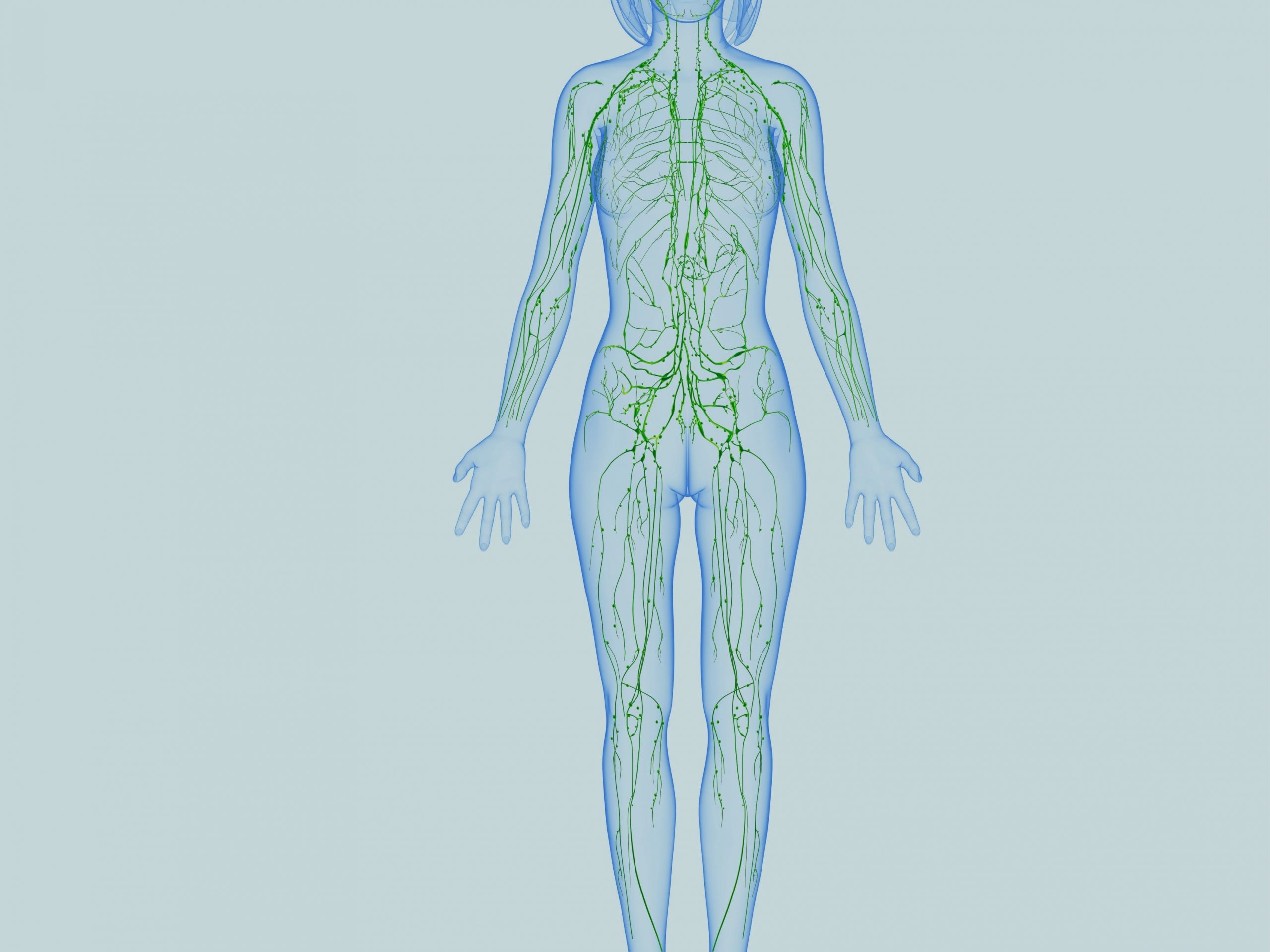All you need to know about the lymphatic system
The lymphatic system is part of your immune system and is responsible for helping fluid and waste leave the body, and for regulating the immune system. When the lymphatic system, comprising tiny vessels and nodes, becomes blocked, fluid builds up and stagnate, causing the entire system to become toxic. This makes us feel sluggish and become more susceptible to viral or contagious diseases.
When your body has an infection, injury, cancer or damage to the lymphatic system, your lymph nodes may swell or enlarge as they try to destroy the cells that are attacking the body. This causes your lymph nodes to swell and become sensitive. Swollen lymph nodes is an indication that something isn’t right in your body. As sore throat is an indication of a bacteria or virus attacking your upper respiratory tract, painful or sensitive armpit lymph nodes are a red flag for breast cancer, for example.
When there’s a problem, such as infection, injury, or cancer, lymph nodes in that area may swell or enlarge as they work to filter out the “bad” cells. Swollen lymph nodes (lymphadenopathy) tell you that something is not right, but other symptoms help pinpoint the problem. For instance, ear pain, fever, and enlarged lymph nodes near your ear are clues that you may have an ear infection or cold.
More about the lymphatic system…
The lymphatic system makes blood circulation look simple by comparison. Made up of fine vessels and lymph nodes, this little-known circulation network is an important part of the immune system. Fluid travels through the lymph system around the body, filtering out waste and debris, and carrying nutrients to cells.
The lymph nodes do the collection and filtering of waste material from cell fluid, while the lymph vessels return the fluid back into general circulation. This clears the entire body, stopping excess fluid from stagnating in cell tissues. The lymph nodes store antibodies cells responsible for fighting infections and destroying germs carried in through the lymph fluid.
Unlike the heart, the lymphatic system doesn’t have a pump to push it round the body. It relies on muscular action and body movement to keep the fluid moving. To work efficiently, it also requires all areas of the body to be in good condition; that means adequate fluid intake, excellent nutrition, exercise and a high level well-being.
Why does the lymphatic system go wrong?
The lymphatic flow can stagnate for many reasons, some of them are:
- Swelling
- Chronic inflammation
- Too little exercise
- Too much starchy food
- Stress
- Fatigue
- Emotional shock
- Age
- Poorly fitted clothing
- Damage of the lymphatic system due to a disease of the system.
When lymphatic circulation slows down, the regeneration of cells becomes less effective. This condition allows toxins and proteins to accumulate around the cells, causing cellular oxygenation to decrease and tissue regeneration to diminish.
The tell-tale signs of edema or tight swollen tissue appear. It commonly occurs after a long-distance air travel: ankles and legs become tight and puffy. This is due to a lack of movement, pressure on lymph vessels from sitting, and the hanging position of the legs.
Why is Lymphatic drainage massage good for you?
Lymphatic Drainage massage stimulates this system by clearing blockages, thereby eliminating toxins and allowing freer and more efficient transport of nutrients to cells. In turn, this boosts the immune system and increases metabolism.
Lymphatic Drainage is a form of massage. Unlike some other forms of massage, it utilises a very light pressure combined with soft pumping movements in the direction of the lymph nodes. The process can take from 30 minutes (when just concentrating on localised problem areas), to two hours for a whole-body treatment.
Benefits of Lymphatic Drainage
- Clearing areas of congestion such as swollen ankles, puffy eyes and swollen legs.
- Promotion of scar tissue healing, torn ligaments and sprains.
- Post-operative healing.
- Swelling relief following plastic surgery.
- Boost your immune system.
- Treatment of Lymphoedema and other conditions arising from venous insufficiency.
- Improving chronic conditions such as sinusitis, arthritis, acne and other skin conditions.
- Deep relaxation and stress relief.
- Reduce cellulite appearance.
- Help to get rid of toxins.
- Help to reduce and balance fluid in the body.
- Unblock milk ducts which could cause mastitis.
We hope this information is useful for you. If you need advice or have any questions about our treatments, please contact us. You can find us in Mill Hill Broadway and Islington. We are always happy to help. If you like this blog, please share!
We are always happy to help!



